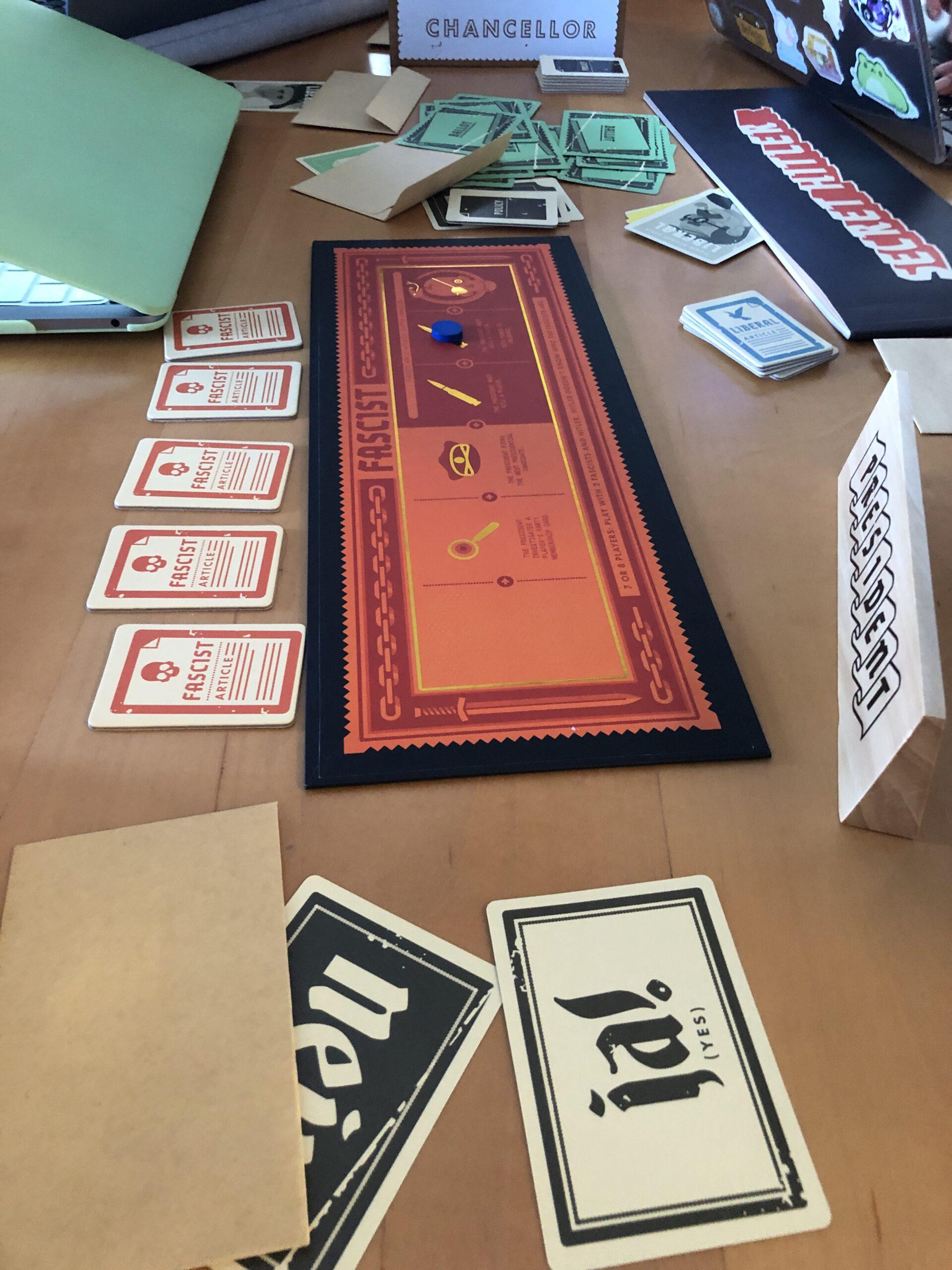This week, I went to Game Night on Wednesday night and played Secret Hitler with a group of six other 247G students. We played the physical board game version of Secret Hitler, which is published by Goat, Wolf, & Cabbage LLC, with Max Temkin (also co-creator of Cards Against Humanity!), Mike Boxleiter, and Tommy Maranges as designers and Mackenzie Schubert as illustrator. It is produced by Breaking Games and was released in 2016.
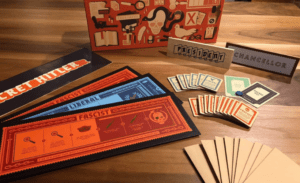
The target audience is for people aged seventeen and up, so it aims to reach an older group of people. The group playing the game does not necessarily need to know each other well, so it fits as a party game, although knowing opponents well could provide an advantage in guessing their role. Additionally, given the title and theme of the game, the target audience is further defined by players who are willing to engage with a theme that could be sensitive.
The game allows 5-10 players, where each person is either a liberal or fascist (given by a party card), and one of the fascists is “Hitler” (given by the secret role card). No matter which party they are part of, players can vote for chancellor, and if/when they become president or chancellor, they can choose between liberal/fascist policies. Presidents can also gain different powers, such as checking someone’s party, choosing the next president, or choosing one player to “kill.” In each round, the President chooses a Chancellor, and all players vote “ja” or “nein” (yes or no) for the Chancellor. The strict majority of players must vote yes for the Chancellor to be elected; if not, the round is skipped and the President is passed to the next player. If the Chancellor is elected, the President draws three policies from the deck of policies, chooses one to discard, and gives the remaining two to the Chancellor. The Chancellor then chooses one to discard, and the remaining policy is “passed.” The President role is passed to the left, and the rounds continue. Presidents will gain special “powers” only once a certain number of fascist policies have been passed.

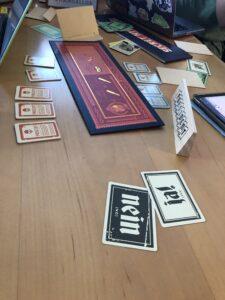
The player relationships are quite interesting because the liberals and Hilter have no idea who is who, but fascists know each other and who Hitler is. Thus, the interaction pattern seems to be a team competition overall, but it could also feel like a multilateral or unilateral competition at first. We could consider the objective to be outwit or race, where players need to outwit the other party, or race to reach either win condition for their team. Secret Hitler puts a creative spin on the objective element because there is the basic objective of getting a certain number of your party’s policies passed (e.g. five for liberals and six for fascists), but there is also an objective based on the Hitler role (e.g. killing Hitler for liberals and electing Hitler as Chancellor for fascists). There are not many resources, except for perhaps the policies that players choose from when they are President/Chancellor, and additional powers unlocked for the President.
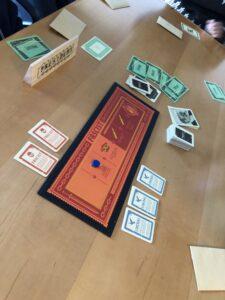
Some similar games could include Coup, Mafia, A Fake Artist Goes to New York, and Spyfall, all in the category of social deduction. Although there is one “Secret Hitler” role, the game is different from A Fake Artist Goes to New York and Spyfall because the secret role also has other people on their team (the fascists). Coup is different from all of these because there are no teams, and there is not one “secret role.” Secret Hitler is also different from Mafia because the ability to take action by becoming President/Chancellor is rotated throughout all players, instead of having some people who are villagers and cannot take as much action throughout the whole game. These aspects of having teams for the secret role and rotation of actions are better because they prevent singling out one person and give more people the direct power to shape the results of the game.
The game was fun because we got to “take on a different role,” connecting to fun as fantasy because we fell into a fantasy world with separate rules and behaviors. We also worked together, while dissolving into debates at times to figure out who was “suspicious,” relating to fun as fellowship and sensation as we brought emotion into our social interactions. As someone who got the fascist role, I also found it particularly fun to be able to know everyone else’s roles and watch as people with liberal roles sometimes turned against each other. Even so, I think I would have still had fun if I got a liberal role with trying to figure out the breakdown of teams.
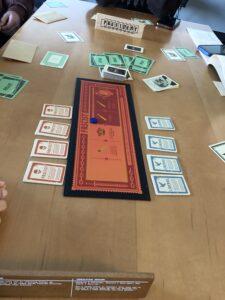
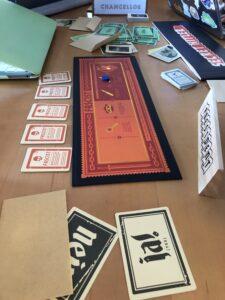
The most obvious moment of success for me was when the fascists won, as I was able to become President because the player before me was killed, and I was able to successfully nominate Hitler as Chancellor because no one suspected her. Two associated moments of success would be having both kills be liberal players. Our win came just after I thought we were about to lose (what could have been an epic fail) because the liberals only needed to pass one more liberal policy to win, and both the President and Chancellor were liberal. However, the odds were in our favor because there were more fascist policies left, and they drew three fascist policies.
If I were to change anything to try to help make the game better, I might introduce more opportunities to check the identities of people or other mechanics that would give liberals more information (rather than, for example, relying on luck to not choose Hitler when choosing Chancellor once enough fascist policies have been passed), especially given that the odds are against liberals with the distribution of liberal versus fascist policies (6 versus 11). Perhaps these ideas are heavily influenced by our game, where I did not see liberals win and realized the fascists were “saved” by probability. The distribution of policies is likely very purposefully chosen, however, and liberals do need one less policy to win; even so, perhaps there is actually a higher probability of fascists winning on purpose as a sort of commentary. As the “Playing Like a Designer” video mentions, it was hard to observe while I was experiencing the game, but I was able to draw from my thoughts and observation of surprise at not having the final liberal policy passed to form the starting point for my suggestions.


